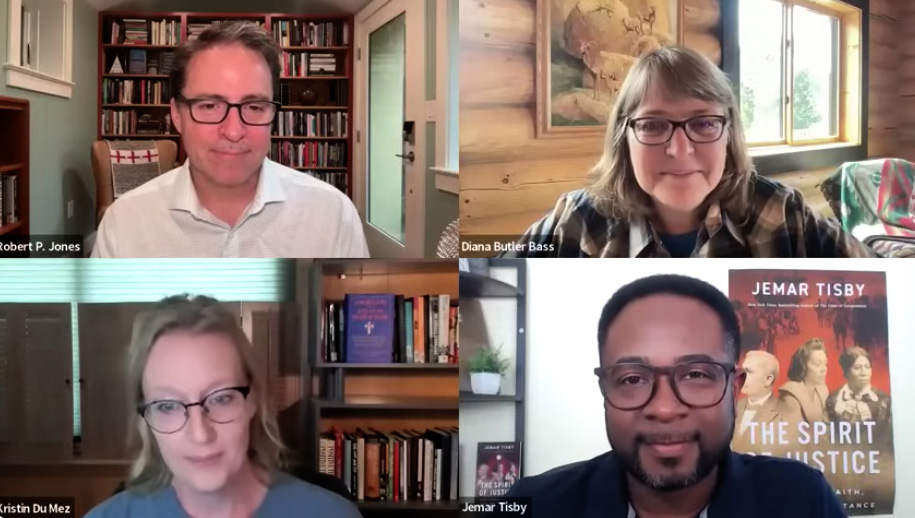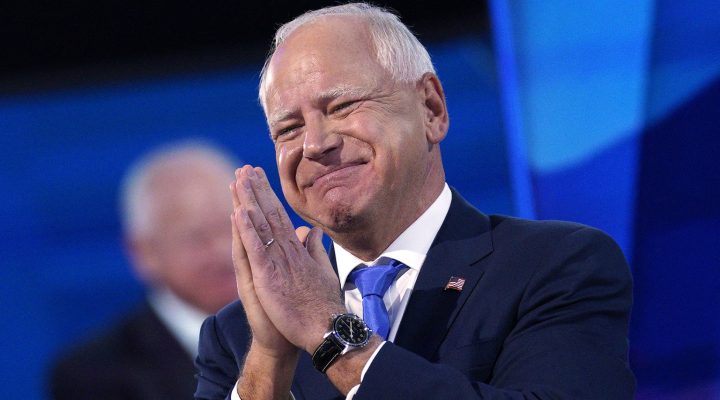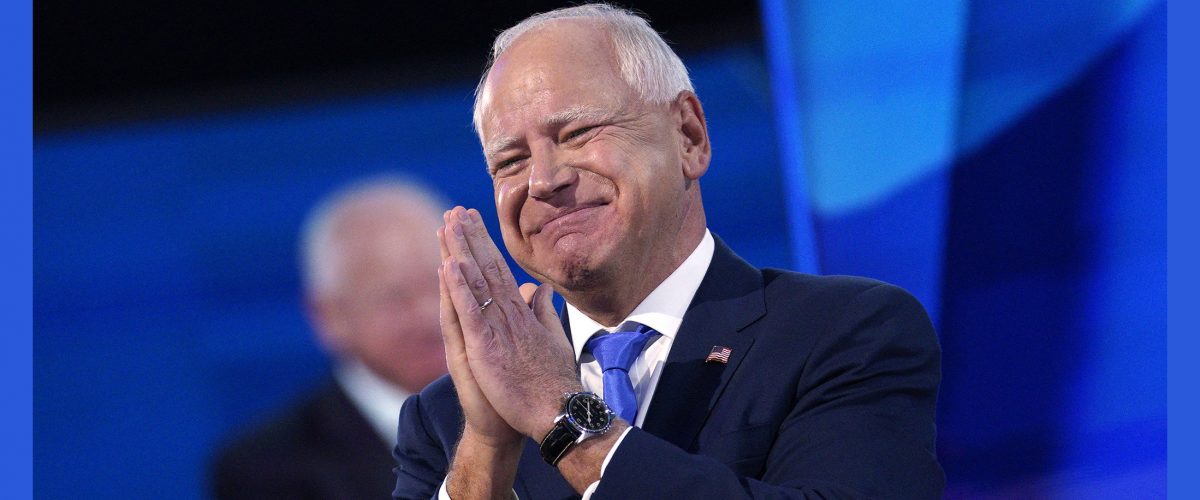The Mainline Protestant faith of Minnesota Gov. Tim Walz could sway some white, conservative Midwesterners to support Democratic presidential candidate Kamala Harris in November, author Diana Butler Bass said during a recent edition of the “The Convocation Unscripted” webinar.
Harris selected Walz, a member of the Evangelical Lutheran Church in America, as her running mate in the 2024 presidential election. The former high school teacher, football coach, congressman and National Guardsman accepted the nomination Aug. 21 during the Democratic National Convention.
“It’s worth noting that the ELCA is also the whitest of all of the Mainline denominations, which is saying a lot,” said Bass, an historian, speaker and writer whose work has appeared in publications such as Atlantic Monthly and The New York Times, and whose many books include the bestseller Freeing Jesus: Rediscovering Jesus as Friend, Teacher, Savior, Lord, Way and Presence.
Bass noted the “style of Republicanism” in Midwestern Mainline churches is softer than many parts of the country. “It’s not like in-your-face, Make America Great Again kind of stuff. You’ll get a few of those people around the Mainline, but mostly it’s an old-fashioned Republicanism very much tied to Mainline identity going back generations.”
Mainline Protestants supported Donald Trump more in the 2020 election than in 2016, she added. “But they’re not doing it for some of the same reasons that white evangelicals are. And what that has always signaled to me is that the support for Trump and his political ideology is a lot softer in white Mainline spaces than it is in white evangelical spaces.”

Robert Jones, Diana Butler Bass, Jemar Tisby, Krstin duMez
Bass said Democrats must do a much better job than in past years of actively wooing Mainline voters, especially conservatives.
“I’ve always sensed there is a swayable part of the white Mainline that in different circumstances will vote in different ways, and most political parties don’t pay attention to that,” she said. “They just kind of let white mainliners go on and do their thing and quietly vote in whatever towns they happen to be in, but they don’t press into these people as a voting bloc.”
Bass joined fellow religion and politics experts Kristen Du Mez, Robert P. Jones and Jemar Tisby for the online discussion connected to their weekly “The Convocation” Substack.
Democrats will have their work cut out for them in attempting to generate more Mainline support, said Jones, president of Public Religion Research Institute and author of the bestselling book The Hidden Roots of White Supremacy.
“Everybody knows that white evangelicals voted 85% for Trump. But the dirty little secret is that 60% of white Mainline Protestants, the nonevangelical Protestants, also voted for Trump,” he explained. “They’re basically evenly split in terms of affiliation, about a third Republican, about a third Democrat, about a third independent. But they lean Republican.”
Jones concurred with Bass that it’s a mistake to assume all or most Mainline Protestants are Democrats located in big cities: “Most of these churches are rural, most of them are small, and they make up 14% of the population, which is as big as the white evangelical world. … So whatever stereotype there is about them being overwhelmingly liberal really doesn’t hold true if you look at who is in the pews.”
“Whatever stereotype there is about them being overwhelmingly liberal really doesn’t hold true if you look at who is in the pews.”
The states critical to capturing Mainline Protestant votes are located in the upper Midwest, with 25% of Wisconsin, 20% of Pennsylvania and 18% of Michigan made up of that segment of American Christianity, he said. “These were states that were decided on a razor’s edge both in 2016 and in 2020. So every vote counts there.”
Mainline Protestants even have a significant presence in regions dominated by white evangelicals, including North Carolina (18%) and Arizona (10%), he added. “But Michigan, Wisconsin, Pennsylvania are must-win states for both campaigns, but particularly for the Democratic side.”
Bass said she has worked with Congregationalist, Lutheran and Methodist church leaders in the Midwest to help them understand how they can effectively engage on election issues.
“Most of those people are pretty civic minded, but they just don’t know how (to proceed). They have high degree of separation of church and state, so it’s helping them figure out the best stance for a congregation where people are Democrats and Republicans, and how leadership can legally and responsibly engage politics in an election season.”
Walz is a safe pick because he is not considered an extreme choice given that his race and professional background provide a balance with Harris, an African and Asian American former prosecutor and vice president under Joe Biden, said Tisby, a history professor at Simmons College of Kentucky who is a speaker and writer on issues of racial justice and is the author of numerous books including the bestseller The Color of Compromise.
“Walz presents as this middle-aged Midwestern white man, a common every-man. It is perhaps an advantage that he was a public school teacher, a state championship-winning football coach involved in the Gay-Straight Alliance at the school,” Tisby said. “These are things normal people can grasp onto. And more importantly, in terms of his campaign, he can speak that language.”
It also helps that Walz has declared his love of hunting to the extent that “Harris Walz” camouflaged hunting caps are currently for sale at KamalaHarris.com, said Du Mez, professor of gender, religion and politics at Calvin University in Michigan and author of the bestselling book Jesus and John Wayne.
“This is exactly what the Democratic Party needs, and not just to win,” he added. “For too long, we’ve been fed these compartmentalized identities and these have been pushed and this is how polarization works. And you’re told if you listen to country music, if you have a gun, if you like to hunt, if you fill-in-the-blank, then you belong here and the other side despises you, and Walz completely blows that up.”
Related article:
Have you heard that Tim Walz is … a Lutheran?


